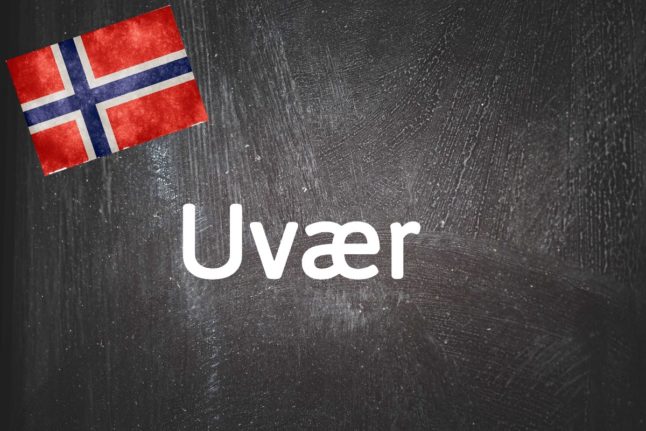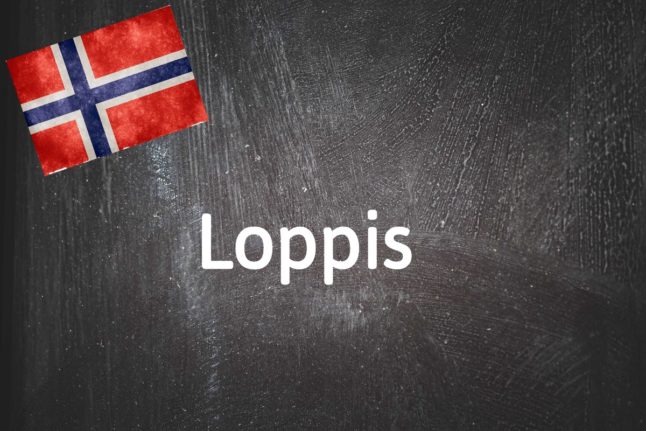What is uvær
Uvær is a useful Norwegian term without a direct one-word equivalent in English. Depending on the context, you could translate it as ‘bad weather’, ‘inclement weather’, or even ‘storm’.
The word can be used to describe windy, rainy weather, even if the wind speeds don’t qualify as a storm. The Norwegian word for storm is the same as English. You will also hear storms referred to as ekstremvær, meaning extreme weather.
More mild rainy conditions can be described as yr. Yr is the word used to describe drizzle. If you are into the specifics and are willing to challenge yourself to measure raindrops – drizzle is precipitation with a drop size of less than 0.5 mm and is a transition between rain and clouds.
On its own, vær means weather and comes from the Old Norse term veðr and is related to the equivalent words in many other languages: English’ weather’, German Wetter, Swedish väder and Dutch weer, to name a few. The root of the Old Norse word means ‘gust’ or ‘breath’. It eventually became generalised to refer to both good and bad weather conditions.
The prefix u is most often used in Norwegian as a form of negation for adjectives. For example, lykkelig (happy) becomes ulykkelig (unhappy), mulig (possible) becomes umulig (impossible) and so on. It can also be used as a prefix to denote an abnormal, extreme form of the root noun, implying judgment from the speaker. For example, the word udyr means ‘beast’ or ‘monster’ from u + dyr (animal).
In this case, u isn’t a negation but a sign of abnormality and undesirability, a distorted form of the root word. And uvær falls into this category: it doesn’t refer to a lack of weather but rather weather that is unusual and extreme, with negative consequences.
Another form of a ‘u prefix’ would be ukultur. The word refers to bad behavior or a generally hostile culture for work and education.



 Please whitelist us to continue reading.
Please whitelist us to continue reading.
Member comments